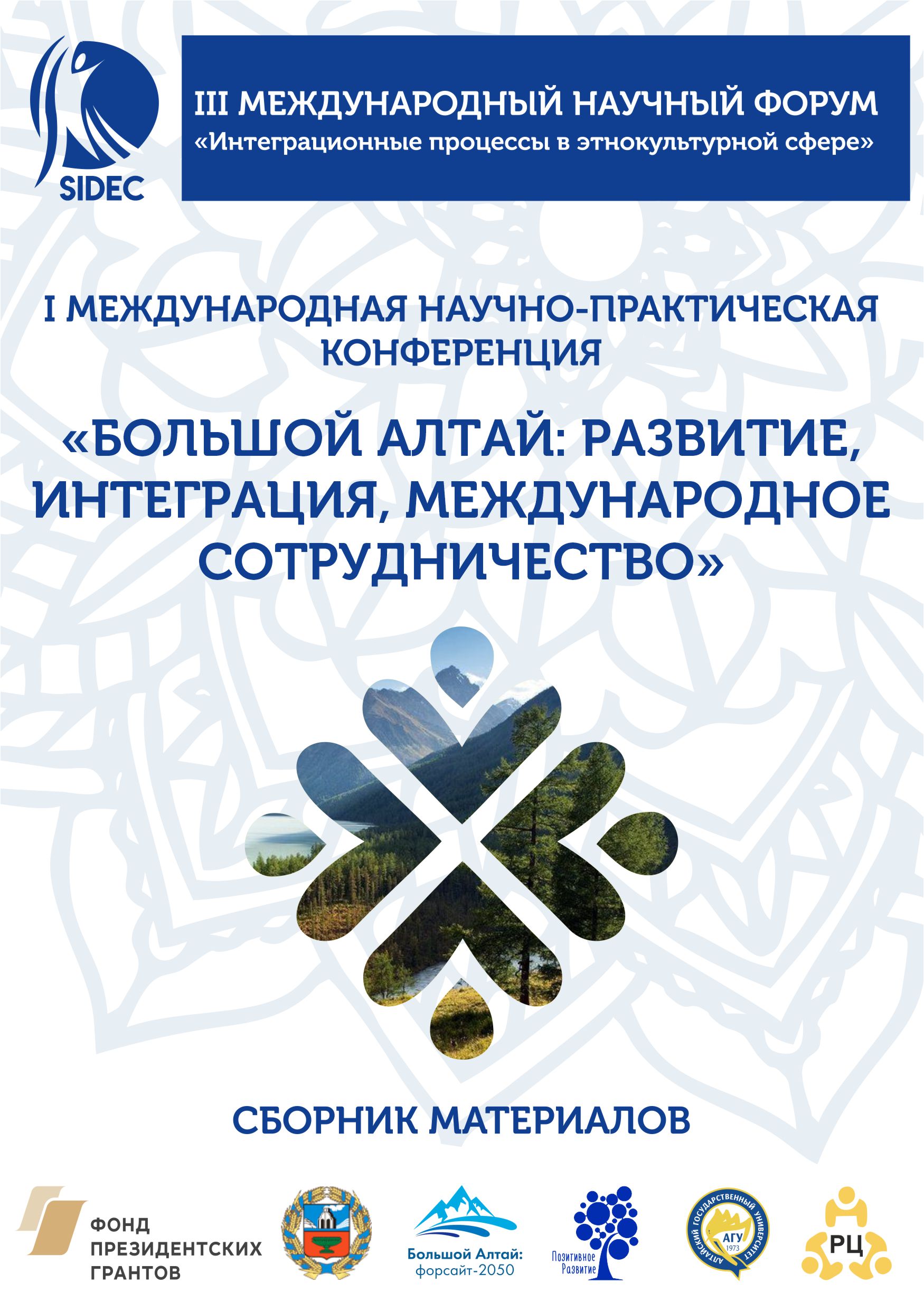IDENTIFICATION PROCESSES IN THE CENTRAL ASIAN REGION
Main Article Content
Abstract
Identity problems from the perspective of modern life come to the forefront of state building and challenges of history. The cultural component reveals itself in all types of identity. By the end of the twentieth century, the question «who?» with an emphasis on contextual understanding. Until now, the Central Asian region has not taken advantage of the historical chance to actualize its identity. The answer of civilizations is connected with the problem of preserving cultural identity. In this sense, the Central Asian region projects the problems of human destiny in accordance with the originality of the history and culture of a particular geographic space. What should be borne in mind when it comes to the regional identity of Central Asia? Firstly, the ability to form unity within the region will show the level of culture and understanding of each state. Despite the commonality of historical origins, territorial proximity, common social memory and cultural values, there are many differences that specify the side factors of regional identity. Secondly, the regional identity of Central Asia cannot be formed from outside. The external view of the unity and territorial boundaries of the region does not always coincide with the internal position that is formed within the region. Thirdly, in the present, the Eurasian context in the definition of identity is actualized with renewed vigor and in a new understanding.
Downloads
Download data is not yet available.
Article Details
How to Cite
[1]
Urmanbetova, Z. 2021. IDENTIFICATION PROCESSES IN THE CENTRAL ASIAN REGION. Social Integration and Development of Ethnic Cultures in the Eurasian Space. 2, 10 (Aug. 2021), 224-237.
Section
Статьи
References
Фукуяма Ф. Идентичность. Стремление к признанию и политика неприятия. Гл.1. Политика достоинства. М., 2019. С. 6.
Фукуяма Ф. Идентичность. Стремление к признанию и политика неприятия. Гл.2. Третья часть души. М., 2019. С. 7.
Фукуяма Ф. Идентичность. Стремление к признанию и политика неприятия. Гл.12. Мы, народ. М., 2019. С. 35.
Хантингтон С. Кто мы?: Вызовы американской идентичности. – М.: Транзиткнига, 2004. С. 338.
Малахов В. Символическое производство этничности и конфликт // Идентичность: поиск, производство и воспроизводство. Б., 2005. С. 12.
Гуссерль Э. Кризис европейского человечества и философия //Культурология. ХХ век: Антология. М., 1995. С. 300.
Дильтей В. Наброски к критике исторического разума //Вопросы философии. 1988. № 4. С. 135–140.
Бзежинский Зб. Великая шахматная доска. М., 1997. С. 71.
Юнг К. Г. К пониманию архетипа младенца //Самосознание европейской культуры ХХ века. М., 1991. С. 123.
Ясперс К. Духовная ситуация времени //Мир философии. Ч.II. М., 1991. С. 578.
Бзежинский Зб. Великая шахматная доска. М., 1997. С. 74.
Бзежинский Зб. Выбор: мировое господство или глобальное лидерство. М., 2005. С. 22.
Фукуяма Ф. Идентичность. Стремление к признанию и политика неприятия. Гл.2. Третья часть души. М., 2019. С. 7.
Фукуяма Ф. Идентичность. Стремление к признанию и политика неприятия. Гл.12. Мы, народ. М., 2019. С. 35.
Хантингтон С. Кто мы?: Вызовы американской идентичности. – М.: Транзиткнига, 2004. С. 338.
Малахов В. Символическое производство этничности и конфликт // Идентичность: поиск, производство и воспроизводство. Б., 2005. С. 12.
Гуссерль Э. Кризис европейского человечества и философия //Культурология. ХХ век: Антология. М., 1995. С. 300.
Дильтей В. Наброски к критике исторического разума //Вопросы философии. 1988. № 4. С. 135–140.
Бзежинский Зб. Великая шахматная доска. М., 1997. С. 71.
Юнг К. Г. К пониманию архетипа младенца //Самосознание европейской культуры ХХ века. М., 1991. С. 123.
Ясперс К. Духовная ситуация времени //Мир философии. Ч.II. М., 1991. С. 578.
Бзежинский Зб. Великая шахматная доска. М., 1997. С. 74.
Бзежинский Зб. Выбор: мировое господство или глобальное лидерство. М., 2005. С. 22.

